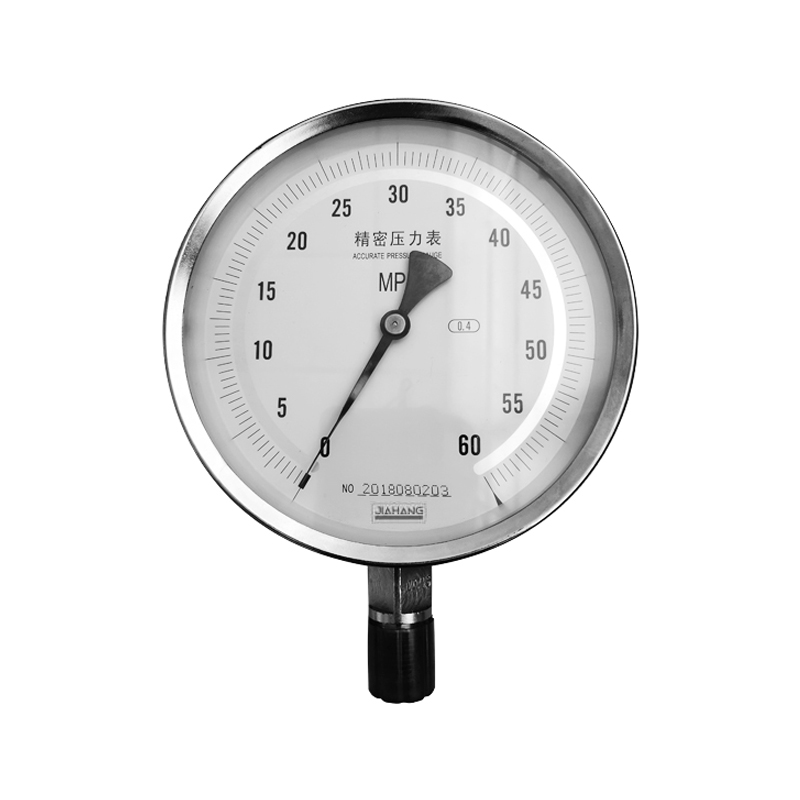
Dec . 29, 2024 04:58 Back to list
Popular Differential Pressure Gauges for Accurate PSI Measurements in Various Applications
Understanding Differential Pressure Gauges A Critical Tool in Various Industries
In the realm of industrial measurement and control, differential pressure gauges play an indispensable role. These specialized instruments measure the difference in pressure between two points, enabling accurate monitoring and control of processes across multiple industries, including oil and gas, pharmaceuticals, water treatment, and HVAC systems. Their importance cannot be overstated, as they provide essential data that can prevent equipment failures, ensure safety, and improve operational efficiency.
What is a Differential Pressure Gauge?
A differential pressure gauge, often abbreviated as DP gauge, consists of two pressure input ports and a measuring element. The gauge measures the pressure difference between these two points, providing readings in various units including psi (pounds per square inch), kPa (kilopascals), and bar. They are widely utilized in many applications such as monitoring filters, pumps, and flow rates, ensuring that systems operate within optimal parameters.
How Differential Pressure Gauges Work
The working principle of a differential pressure gauge is relatively straightforward. When fluid enters the gauge through the two ports, it exerts pressure on the sensing element, which could be a diaphragm, bellows, or piston, depending on the gauge design. The differential pressure between the two inputs causes the element to deflect, generating a mechanical movement. This movement is then translated into a readable output, providing operators with vital information about the pressure difference between the two points being monitored.
Applications of Differential Pressure Gauges
1. Filtration Monitoring In industries where fluid filtration is critical, differential pressure gauges are used to monitor filter performance. An increase in pressure differential often indicates that a filter is becoming clogged and requires cleaning or replacement. This proactive maintenance can prevent costly downtime and product contamination.
2. Flow Measurement In many applications, differential pressure gauges can be used to infer flow rates through orifices, venturi meters, or other flow-measuring devices. By applying the Bernoulli equation and knowing the pressure differential, engineers can calculate the flow rate, ensuring that processes operate efficiently.
famous differential pressure gauge psi

3. HVAC Systems In heating, ventilation, and air conditioning (HVAC) systems, maintaining balanced air pressure is crucial for comfort and safety. Differential pressure gauges help to monitor air filters and ductwork, ensuring that airflow is optimized and that systems are functioning as intended.
4. Pump Monitoring For pump systems, knowing the differential pressure across pumps can indicate performance levels. A sudden change in the pressure differential can signal potential issues such as cavitation, blockages, or equipment wear, allowing operators to address problems before they result in equipment failure.
5. Cleanroom Environments In pharmaceutical and scientific industries, maintaining proper pressure differentials is essential for creating cleanroom environments. Differential pressure gauges monitor the airflow between areas to prevent contamination and ensure compliance with strict regulatory standards.
Advantages of Using Differential Pressure Gauges
One of the most significant advantages of differential pressure gauges is their accuracy. These instruments provide precise measurements that are crucial for decision-making in complex industrial processes. Furthermore, they offer real-time data, allowing for immediate adjustments to be made to optimize performance.
Additionally, modern differential pressure gauges are designed to withstand harsh environmental conditions, including high pressures and extreme temperatures. Many models are digital, featuring advanced technology that enhances reliability and ease of use. Many gauges include features such as alarms and remote monitoring capabilities, further enhancing their utility in sophisticated industrial applications.
Conclusion
In summary, differential pressure gauges are essential instruments that provide vital insights into the functioning of various systems across multiple industries. By measuring the pressure difference between two points, these gauges facilitate efficient operations, enhance safety, and contribute to overall system reliability. As industries continue to seek ways to improve efficiency and minimize downtime, the role of differential pressure gauges will only become more significant. Their ability to provide accurate, real-time data makes them a trusted tool for engineers and operators committed to maintaining the integrity of their systems. Whether it’s in a filtration setup or a cleanroom environment, differential pressure gauges are truly a cornerstone of industrial measurement and control.
-
High-Precision 5 Valve Manifold Differential Pressure Gauge Suppliers
NewsApr.29,2025
-
High-Precision Diaphragm Vacuum Pressure Gauges Manufacturers & Quotes
NewsApr.29,2025
-
Omega Differential Pressure Gauges High Accuracy & Durability
NewsApr.28,2025
-
Low Pressure Differential Pressure Gauges Precision Solutions & Quotes
NewsApr.28,2025
-
Digital Diaphragm Pressure Gaauge Precision Measurement & OEM Quotes
NewsApr.28,2025
-
Differential Pressure Gauge China Price High-Accuracy & Best Quotes
NewsApr.28,2025
